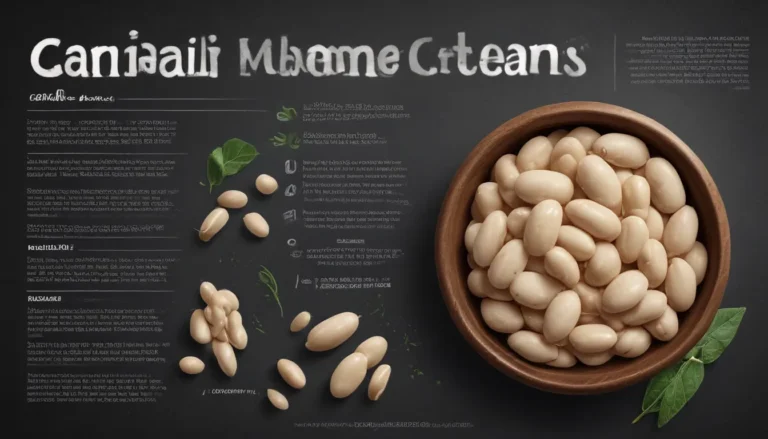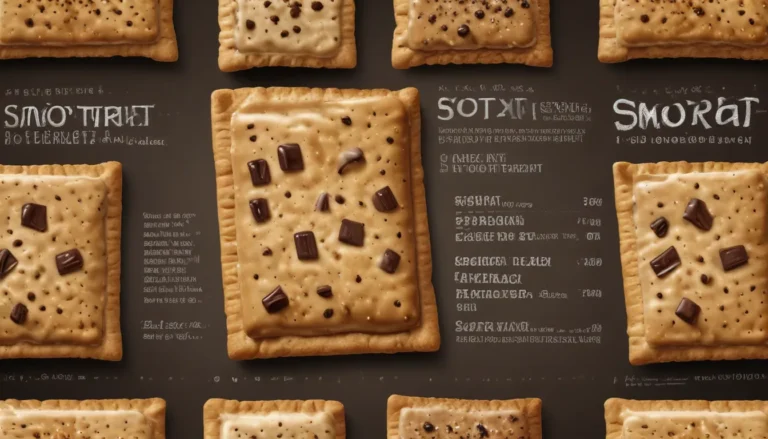The pictures in our articles might not always show exactly what the text is talking about. We use these images to make the article more interesting and eye-catching. They are there to add to the text, but not to replace it or show every detail.
Are you a latte lover looking to understand more about the nutritional value of your favorite morning drink? Whether you're sipping on a classic latte or enjoying a trendy matcha latte, it's essential to be informed about what you're consuming. In this article, we'll break down 11 key latte nutrition facts to help you make healthier choices while still indulging in your beloved latte.
Understanding Latte Nutrition: From Calories to Vitamins
Let's dive into the delightful world of latte nutrition and explore the components that make up this beloved beverage.
Key Takeaways:
- Lattes typically have between 150-300 calories, 6-15 grams of fat, and 8-15 grams of protein. Be cautious of added sugar and customize wisely for a healthier option.
- Lattes offer calcium, vitamin D, and potassium from whole milk. Pay attention to caffeine, cholesterol, and sodium levels. Customize your latte with care for a balanced and enjoyable treat.
Calorie Content
A standard latte made with whole milk contains around 150-300 calories, depending on the size and ingredients used.
Fat Content
The average latte contains approximately 6-15 grams of fat, which can vary based on the type of milk and any additional flavorings.
Protein Content
For those looking to boost their protein intake, a latte typically provides 8-15 grams of protein, making it a satisfying drink.
Carbohydrate Content
Lattes generally contain 12-20 grams of carbohydrates, primarily from the milk and any added sweeteners.
Sugar Content
Depending on the syrups or sweeteners added, a latte can contain 10-30 grams of sugar, so be mindful of your sugar intake.
Vitamin and Mineral Content
Lattes made with whole milk are a good source of calcium, vitamin D, and potassium, providing essential nutrients for your body.
Caffeine Content
A typical latte made with one shot of espresso contains approximately 63-126 milligrams of caffeine, giving you that morning energy boost.
Cholesterol Content
A latte typically has around 15-30 milligrams of cholesterol, primarily coming from the milk used in the drink.
Sodium Content
A standard latte contains approximately 100-200 milligrams of sodium, depending on the type of milk and any added flavorings.
Customizing Your Latte for a Healthier Option
Discover how you can modify your latte to suit your preferences and dietary needs while still enjoying a delightful treat.
Customization and Add-ons
- Choose non-fat or alternative milk options for a lower-fat latte.
- Opt for sugar-free syrups or reduced-sugar options to minimize your sugar intake.
- Skip whipped cream or choose a lighter foam for a lower-calorie latte.
- Experiment with different flavors and spices to enhance your latte without adding extra calories.
Overall, lattes can be a delicious addition to your day, but it's essential to be mindful of the nutritional aspects when incorporating them into your diet. Whether you're a fan of classic lattes or enjoy exploring flavored varieties, understanding the basic nutrition facts can guide you in making informed choices for a healthier lifestyle.
Conclusion: Enjoy Your Latte Mindfully
In conclusion, lattes can be a delightful and satisfying beverage, but it's crucial to consider their nutritional value. While lattes offer a blend of espresso and steamed milk, they also provide calories, protein, calcium, and essential vitamins. However, be cautious of added sugars and fats when indulging in a latte. If you have dietary restrictions or lactose intolerance, explore alternative milk options to customize your latte for a more enjoyable experience. By staying informed about the nutrition facts and making mindful decisions, you can relish your latte while maintaining a well-balanced and healthy diet.
Frequently Asked Questions
- How many calories are in a latte?
-
A small 12-ounce latte typically contains around 150-200 calories, but this may vary based on the ingredients used.
-
Are lattes high in caffeine?
-
Yes, lattes contain espresso, which provides caffeine. The caffeine content varies depending on the strength and size of the espresso shot.
-
Can lactose intolerant individuals enjoy lattes?
-
Yes, there are plenty of milk alternatives like soy, almond, and oat milk that can be used to create delicious lattes.
-
Are flavored lattes high in added sugars?
-
Flavored lattes often contain added sugars, so opt for sugar-free or reduced-sugar options if you're watching your sugar intake.
-
How can I customize my latte for a healthier option?
- Choose non-fat milk, sugar-free syrups, and skip whipped cream to create a lower-calorie and healthier latte.
Explore the varied world of lattes and make informed choices that suit your taste preferences and nutritional needs. If you have specific dietary concerns, consult a healthcare professional or registered dietitian for personalized advice on incorporating lattes into your daily routine. Embrace the joy of savoring a delicious latte while nourishing your body with essential nutrients and mindful choices.
This article provides valuable insights into the nutritional aspects of lattes, helping readers make informed decisions about their daily beverage choices. By exploring the key nutrition facts, customizing options, and addressing common queries, this article aims to empower individuals to enjoy lattes mindfully and healthily.






